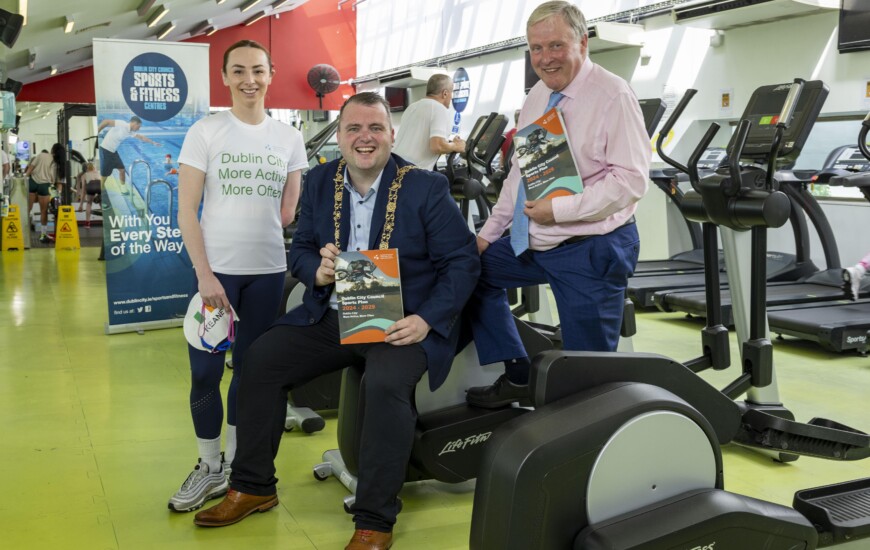Dublin City Council launches first ever sports plan
Dublin People 17 May 2024
Dublin City Council has launched its first-ever sports plan, titled “Dublin City: More Active, More Often’.
The plan contains 84 specific actions to take place over the next 5 years, covering the period 2024-2029.
The primary focus of the plan will be to increase the levels of physical activity of Dublin city’s population, making it one of the most active cities in the world.
The plan is based on 3 pillars: Infrastructure, Programming and Organisation.
In a statement, Dublin City Council said the plan looks to provide high quality facilities and spaces to enable more people to be more active more often, deliver a portfolio of diverse programmes and initiatives that increase levels of activity across Dublin city and develop a fit for purpose organisation structure and operating model to support sport and physical recreation activity in Dublin City
“Dublin City Council has been delivering on the sport and physical activity agenda for well over two decades now,” said Chief Executive Richard Shakespeare.
“Much of our endeavour in terms of provision of facilities, infrastructure, programmes & services goes unheralded. We are immensely proud of what we have achieved yet acknowledge there is huge scope for improvement in terms of our structures, how we market ourselves and inter departmental collaboration.”
“We also need to look to strengthening partnerships and developing research & data collection to provide additional opportunities and insights that will inform strategic decision making. This document provides a foundation and a road-map for that work going forward.”
Shakespeare noted there is a considerable body of research which shows that current levels of exercise and physical activity across Ireland are well below national policy guideline levels.
“The number of people meeting the daily target of 60 minutes per day across the week is well below national targets,” he said.
“This is even more acute for certain groupings including children (up to 18 years of age), disabled people, those living in deprived areas, women and girls and older adults. This plan will attempt to address those concerns.”











